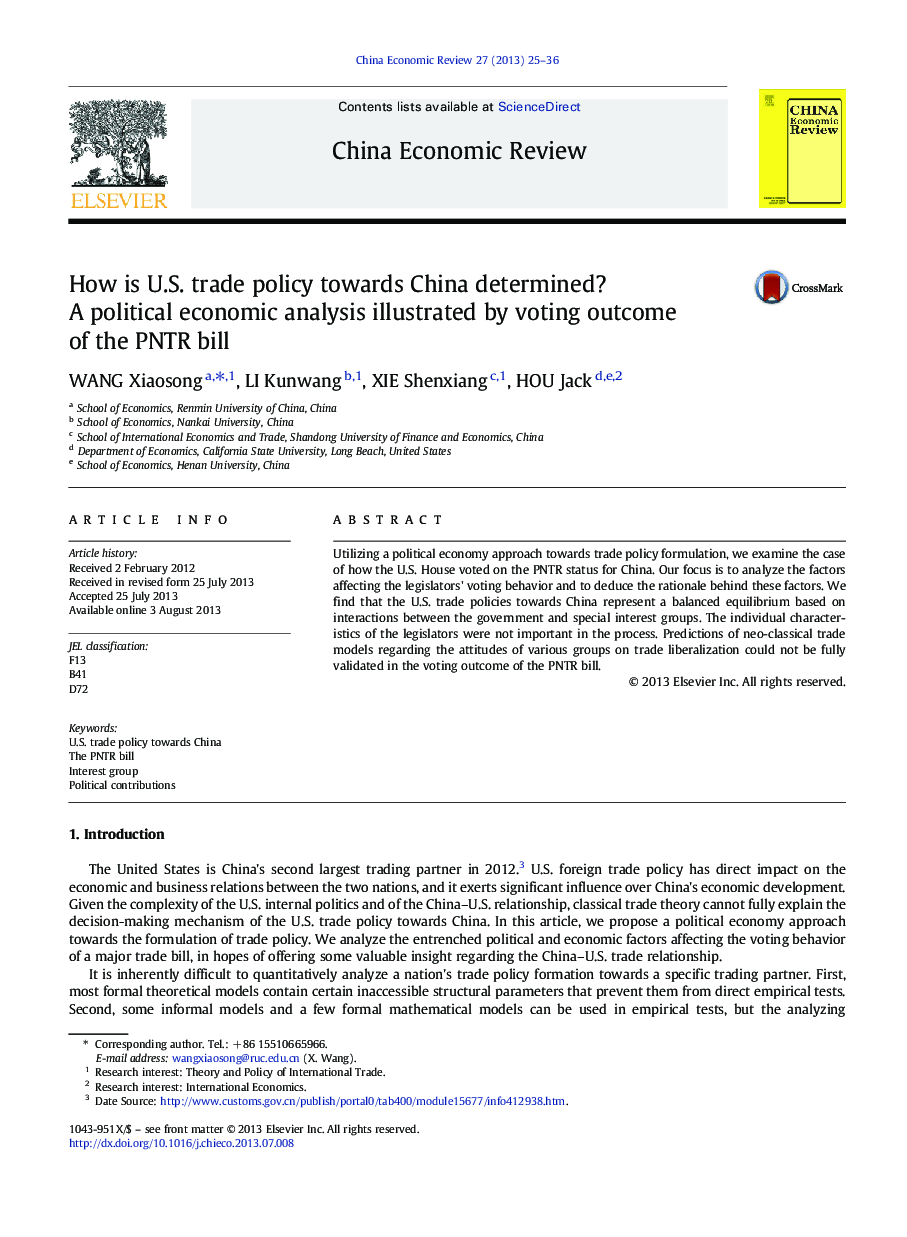| Article ID | Journal | Published Year | Pages | File Type |
|---|---|---|---|---|
| 5047665 | China Economic Review | 2013 | 12 Pages |
â¢U.S. trade policies are formed by interaction between government and interest groups.â¢Political contributions to legislators affected the voting outcome on trade bills.â¢PNTR bill would have failed if business groups had made no political contributions.â¢U.S. trade policy towards China is “for sale”.
Utilizing a political economy approach towards trade policy formulation, we examine the case of how the U.S. House voted on the PNTR status for China. Our focus is to analyze the factors affecting the legislators' voting behavior and to deduce the rationale behind these factors. We find that the U.S. trade policies towards China represent a balanced equilibrium based on interactions between the government and special interest groups. The individual characteristics of the legislators were not important in the process. Predictions of neo-classical trade models regarding the attitudes of various groups on trade liberalization could not be fully validated in the voting outcome of the PNTR bill.
